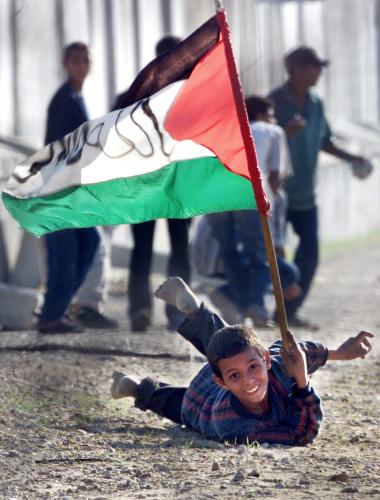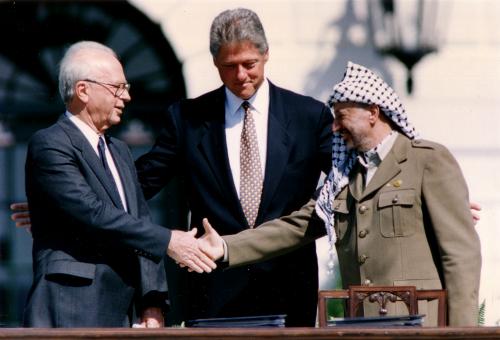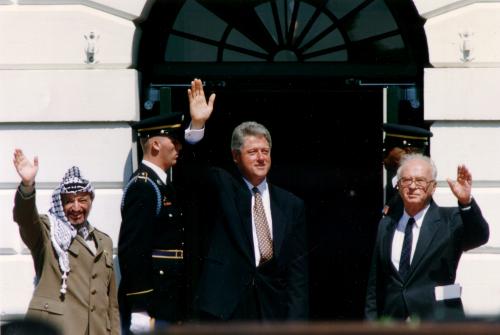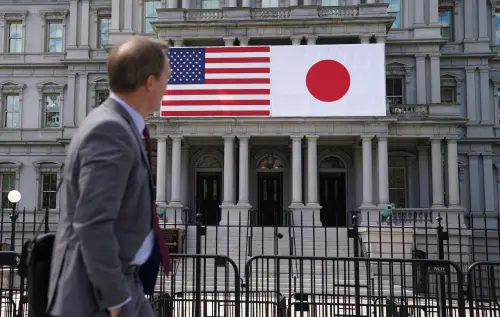When the surprise Oslo Declaration was announced in August 1993, and a signing ceremony set for the White House in September, I was initially disappointed. The sentiment was entirely selfish: I had just days before quit my job at a major American Jewish organization to begin graduate school, and I was suffering from a major case of FOMO. I needn’t have worried—there was no chance anyway that a peon like me would score a seat on the South Lawn, and my former colleagues kindly included me in the activities they planned to mark the day.
On September 13, I videotaped the ceremony on VHS for posterity, and that evening went to a celebration sponsored jointly by American Jewish and American Arab organizations. That these groups could celebrate together was not an outcome of the Accords themselves, but of the careful coalition-building we’d engaged in over the previous years. As minorities in America, our communities had sometimes made common cause on issues like religious freedom and nondiscrimination. But the years just prior to the Oslo agreement had brought us into much closer cooperation, working together to try and halt the genocide in Bosnia.
As the Cold War ended, Yugoslavia fell apart, and the horrors of the Bosnian war took hold, most Americans were not in a mood to wade into what Secretary of State Warren Christopher called “a European problem.” The public demand for a “peace dividend” was reinforced by glib analyses of the conflict like Robert Kaplan’s “Balkan Ghosts,” which painted the manipulation of ethnicity by Balkan leaders for political purposes as the continuation of ancient tribal hatreds that America was powerless to interrupt.
Candidate Bill Clinton campaigned on the idea of lifting an arms embargo against the Bosnians and conducting air strikes against Serb forces carrying out genocidal attacks—but once in office, he seemed in no hurry to intervene. There were only two American constituencies who viewed the genocide as intolerable and intervention to halt it as urgent: American Arabs and American Jews. And so the two years prior to the Oslo announcement had included, for me, hours of coalition meetings with the National Association of Arab Americans (NAAA), a new-ish group that was run by a Palestinian-American, planning grassroots campaigns and carrying out advocacy meetings with congressional staff and then the Clinton administration. But as we worked side by side on Bosnia, the Arab-Israeli conflict hung over our shoulders and occasionally interrupted our solidarity.
The dramatic breakthrough of the Oslo Accords, then, promised a new reality not just for Israelis and Palestinians, but for American Jews and our Arab compatriots. And the joint celebration that night marked a milestone in our work together. At the reception, I ran into my friend R— from NAAA, like me a young woman keen to build a career in politics and foreign policy. We embraced tightly and laughed in amazement, feeling for a moment as if anything was possible.
Twenty-five years later, the very word “Oslo” engenders cynicism—and often harsh words—amongst these same communities. But the connections forged between these two American minorities survive and in some ways are more important than ever in combating ethnic hatred and advancing values of peace and pluralism, especially here in our shared home. Twenty-five years after Oslo, R— and I are still friends, still working in foreign policy, and still each, in our own way and occasionally together, working to build justice at home and peace between Israelis and Palestinians.







Commentary
The Oslo Accords at 25: A personal reflection
September 13, 2018